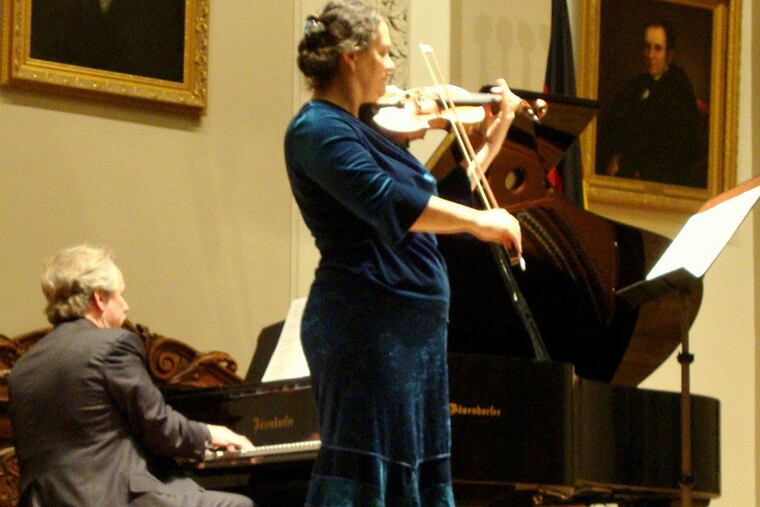Review: Two revelations from the Delius Society
Though the libraries and bookstores of the world are full of great but forgotten music, significant out-of-the-blue discoveries, such as those presented on Sunday by the Delius Society, seem like flukes in the universe.

Though the libraries and bookstores of the world are full of great but forgotten music, significant out-of-the-blue discoveries, such as those presented on Sunday by the Delius Society, seem like flukes in the universe.
Two 20th-century names almost completely unknown in the music world - Herbert Murrill (1909-1952) and Norman O'Neill (1875-1934) - arrived at the German Society of Philadelphia with music you could immediately love, though for rather different reasons. From what little we know of both composers, these pieces were departures: Murrill's from his choral works typical of the era, and O'Neill's from the incidental music he produced for plays from Shakespeare to Maeterlinck.
Purchased on a hunch from a London antiquarian bookdealer by Delius Society chairman Bill Marsh, the Murrill String Quartet, which was premiered in 1940, is a piece with such a strong, confident voice of its own that any antecedents aren't immediately recognizable. You can tell Murrill was breathing the same air as Delius and Walton. In fact, one of the Wister Quartet musicians who played the piece on Sunday identified a quotation from Walton's 1931 Belshazzar's Feast, which is about falling kingdoms and which fits emotionally with the music's rhythmically nervous sense of "I feel a war coming on."
But time and again, one marveled at how intriguingly Murrill could end a movement enigmatically or move into harmonic terrains with no predictable direction, without ever seeming secretive or lost. At times, heaving harmonies were offset by a gorgeous cello melody - one of many instances where multiple musical events were juxtaposed effortlessly. And when the more conventional final movement seemed to be headed toward a premature conclusion, the final seconds had about four marvelous sleights of hand, including a downward-plunging violin gesture that was breathtaking in its concision and wit. You wouldn't expect an ensemble to crack such a big piece on the first attempt, but the Wister Quartet did so in a performance that was a model of fully realized clarity.
O'Neill's 1903 Piano Quintet, which has occasional performances (and even a recording) in the composer's native England, breathes the same air as Rachmaninoff and Faure, the latter for the orchestral scope brought to this instrumentation, and the former for its grand piano-writing, giving Marcantonio Barone a field day. If the piece wasn't the revelation the Murrill quartet had been, it's because O'Neill simply told us more of what we already knew. But the connection between his Irish heritage and Rachmaninoff temperament shows how much the two cultures have in common: emotional extravagance and a gift for storytelling in all forms.
Delius was not neglected but represented by his Legende in a 1916 version of violin and piano. It was introduced as a showstopper of sorts, which is hard to reconcile with Delius' better-known languid manner. But in a performance by violinist Nancy Bean and Barone, Delius unfolded with a stronger than usual pulse, and a coda that hit like a picturesque rainstorm. So surprises arrived at every turn.